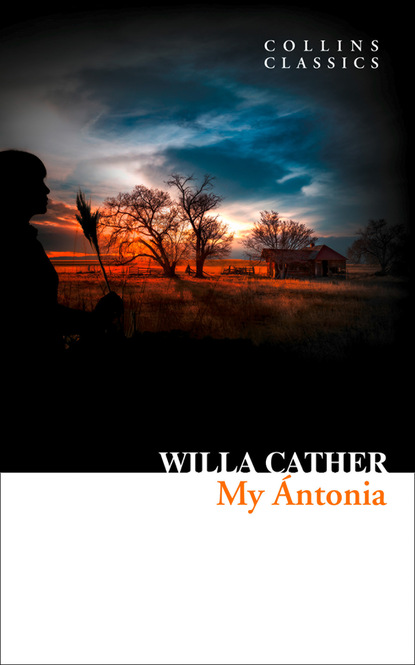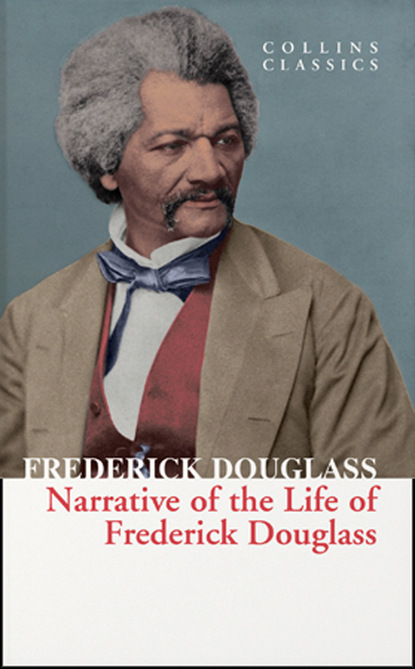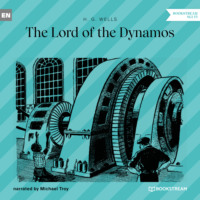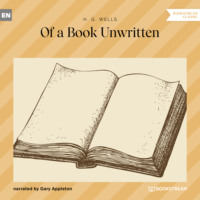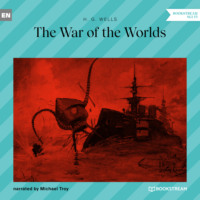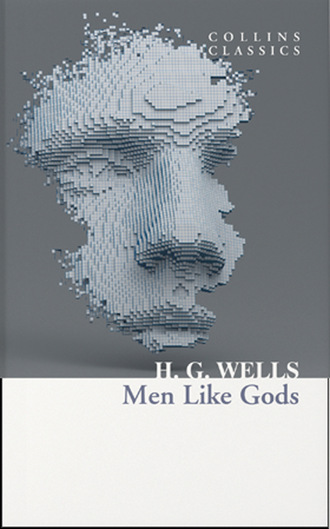
Men Like Gods
“Didn’t they fight?” asked Mr. Catskill pugnaciously.
They had fought irregularly but fiercely. The fight to delay or arrest the coming of the universal scientific state, the educational state, in Utopia, had gone on as a conscious struggle for nearly five centuries. The fight against it was the fight of greedy, passionate, prejudiced and self-seeking men against the crystallization into concrete realities of this new idea of association for service. It was fought wherever ideas were spread; it was fought with dismissals and threats and boycotts and storms of violence, with lies and false accusations, with prosecutions and imprisonments, with lynching-rope, tar and feathers, paraffin, bludgeon and rifle, bomb and gun.
But the service of the new idea that had been launched into the world never failed; it seized upon the men and women it needed with compelling power. Before the scientific state was established in Utopia more than a million martyrs had been killed for it, and those who had suffered lesser wrongs were beyond all reckoning. Point after point was won in education, in social laws, in economic method. No date could be fixed for the change. A time came when Utopia perceived that it was day and that a new order of things had replaced the old …
“So it must be,” said Mr. Barnstaple, as though Utopia were not already present about him. “So it must be.”
A question was being answered. Every Utopian child is taught to the full measure of its possibilities and directed to the work that is indicated by its desires and capacity. It is born well. It is born of perfectly healthy parents; its mother has chosen to bear it after due thought and preparation. It grows up under perfectly healthy conditions; its natural impulses to play and learn are gratified by the subtlest educational methods; hands, eyes and limbs are given every opportunity of training and growth; it learns to draw, write, express itself, use a great variety of symbols to assist and extend its thought. Kindness and civility become ingrained habits, for all about it are kind and civil. And in particular the growth of its imagination is watched and encouraged. It learns the wonderful history of its world and its race, how man has struggled and still struggles out of his earlier animal narrowness and egotism towards an empire over being that is still but faintly apprehended through dense veils of ignorance. All its desires are made fine; it learns from poetry, from example and the love of those about it to lose its solicitude for itself in love; its sexual passions are turned against its selfishness, its curiosity flowers into scientific passion, its combativeness is set to fight disorder, its inherent pride and ambition are directed towards an honourable share in the common achievement. It goes to the work that attracts it and chooses what it will do.
If the individual is indolent there is no great loss, there is plenty for all in Utopia, but then it will find no lovers, nor will it ever bear children, because no one in Utopia loves those who have neither energy nor distinction. There is much pride of the mate in Utopian love. And there is no idle rich “society” in Utopia, nor games and shows for the mere looker-on. There is nothing for the mere looker-on. It is a pleasant world indeed for holidays, but not for those who would continuously do nothing.
For centuries now Utopian science has been able to discriminate among births, and nearly every Utopian alive would have ranked as an energetic creative spirit in former days. There are few dull and no really defective people in Utopia; the idle strains, the people of lethargic dispositions or weak imaginations, have mostly died out; the melancholic type has taken its dismissal and gone; spiteful and malignant characters are disappearing. The vast majority of Utopians are active, sanguine, inventive, receptive and good-tempered.
“And you have not even a parliament?” asked Mr. Burleigh, still incredulous.
Utopia has no parliament, no politics, no private wealth, no business competition, no police nor prisons, no lunatics, no defectives nor cripples, and it has none of these things because it has schools and teachers who are all that schools and teachers can be. Politics, trade and competition are the methods of adjustment of a crude society. Such methods of adjustment have been laid aside in Utopia for more than a thousand years. There is no rule nor government needed by adult Utopians because all the rule and government they need they have had in childhood and youth.
Said Lion: “Our education is our government.”
Конец ознакомительного фрагмента.
Текст предоставлен ООО «ЛитРес».
Прочитайте эту книгу целиком, купив полную легальную версию на ЛитРес.
Безопасно оплатить книгу можно банковской картой Visa, MasterCard, Maestro, со счета мобильного телефона, с платежного терминала, в салоне МТС или Связной, через PayPal, WebMoney, Яндекс.Деньги, QIWI Кошелек, бонусными картами или другим удобным Вам способом.



